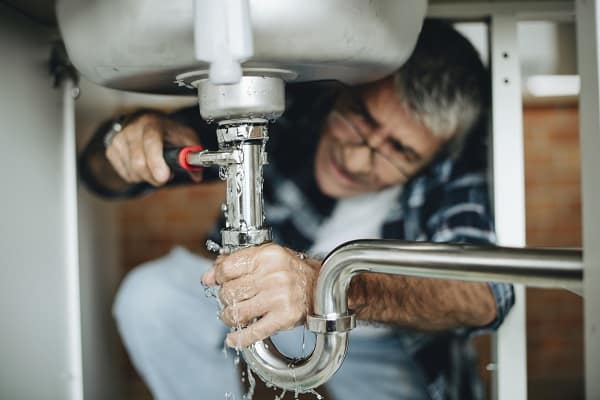Garbage disposals have become an indispensable appliance in modern kitchens, offering a convenient way to dispose of food waste. However, a common misconception is that these machines are invincible and can grind up almost anything you throw into them. This notion can lead to costly repairs and even replacement of the unit. This article aims to provide a comprehensive guide on what should not go into your garbage disposal. By understanding the limitations of this appliance, you can prolong its lifespan, prevent plumbing issues, and contribute to a more sustainable environment.
Contents
The Mechanics of a Garbage Disposal

Understanding the mechanics of garbage disposal is crucial for its proper use. Contrary to popular belief, garbage disposals don’t have sharp blades like a blender. Instead, they have impellers that grind food against a grind ring, breaking it down into small particles. The motor’s power and the grind ring’s efficiency determine the waste the disposal can handle.
However, the system has its limitations. The size and type of material that can be processed are restricted. Overloading the disposal or putting in inappropriate items can lead to jams, dull the impellers, or even burn out the motor. Knowing these limitations is the first step in responsible usage.
Why It Matters

Improper use of garbage disposals can have financial and environmental consequences. The immediate solution often involves calling a plumber when the disposal gets clogged or damaged. These repair costs can quickly add up, turning what was once a convenience into a financial burden.
From an environmental standpoint, the misuse of garbage disposals can contribute to larger issues. For instance, fats and oils that solidify can cause blockages in sewage systems, leading to overflows and water pollution. Understanding what should and shouldn’t go into the disposal is good for the appliance; it benefits the community and the planet.
Fibrous Foods

Fibrous foods like celery, corn husks, and onion skins are a no-go for garbage disposals. These materials have long, stringy fibers that can wrap around the impellers, causing jams. The more fibrous the material, the more likely it is to wind around the disposal’s parts, leading to inefficiency and potential breakdowns.
As an alternative, consider composting these types of food waste. Not only does composting keep these materials out of the water treatment system, but it also turns them into valuable soil additives for gardens and farms. If composting is not an option, these items should be thrown in the trash rather than risk damaging your garbage disposal.
Grease and Fats

Pouring grease and fats down the garbage disposal is a recipe for disaster. When these substances cool down, they solidify and create blockages in the pipes. Over time, this can lead to severe clogs that require professional intervention. The misconception that running hot water while disposing of grease will prevent clogs is misleading; hot water only delays solidification, pushing the problem further down the pipeline.
Instead of using the garbage disposal, collect grease and fats in a separate container. Once the container is full, dispose of it in the trash. Some communities even have recycling programs specifically for cooking oils and fats. By taking these simple steps, you can prevent plumbing issues and contribute to a cleaner environment.
Hard Items

Hard items like bones, fruit pits, and shells can wreak havoc on your garbage disposal. These materials are too tough for the impellers to grind effectively, leading to dull blades and an overworked motor. In extreme cases, hard items can cause the motor to burn out, requiring a complete unit replacement.
The best action is to dispose of these items in the trash or compost them if applicable. Some specialized disposals claim to handle bones and similar hard items, but it’s generally safer to avoid putting them in garbage disposal. Remember, a disposal is designed for food scraps, not hard, indigestible materials.
Starchy Foods

Starchy foods like pasta, rice, and potatoes may seem harmless, but they pose a unique problem for garbage disposals. When these foods come into contact with water, they expand and become sticky. This can lead to clogs in the disposal and the pipes, causing water to go back into the sink.
If you have leftover starchy foods, consider adding them to your compost pile or throwing them in the trash. If you must use the garbage disposal, do so sparingly and run plenty of water to help flush the system. However, the safest option is to keep these items out of the disposal altogether.
Chemicals and Cleaners

Chemicals like bleach and drain cleaners should never be poured into a garbage disposal. These substances can corrode the metal components of the unit, leading to leaks and mechanical failures. Additionally, they can harm the beneficial bacteria in septic systems and contribute to water pollution.
Instead of using harsh chemicals, opt for natural cleaning methods. A mixture of baking soda and vinegar can effectively clean the disposal without causing damage. For persistent odors, consider using citrus peels to freshen up the unit. Always remember that what goes down the drain eventually ends up in the water supply, so choose your cleaning agents wisely.
Non-Food Items

It may seem obvious, but non-food items like plastic wrappers, metal, and glass have no place in a garbage disposal. These materials can cause immediate jams and damage the impellers. Moreover, they can slip past the disposal and create further blockages, leading to more significant plumbing issues.
If non-food items accidentally fall into the disposal, turn off the unit and carefully remove them using tongs or pliers. Never reach into the disposal with your hands, even if the unit is off, as the impellers can cause injury. Always be vigilant about what goes into the sink to prevent accidental disposal of inappropriate items.
The Bottom Line
In summary, while garbage disposals offer a convenient way to manage kitchen waste, they are not designed to handle everything. Understanding what should and shouldn’t go into your garbage disposal can save you from costly repairs and contribute to a more sustainable environment. From fibrous foods and fats to hard items and chemicals, being mindful of what you dispose of can prolong the life of your appliance and keep your plumbing in good condition. Share this article to help spread awareness and promote responsible usage of garbage disposals.



